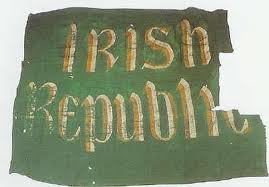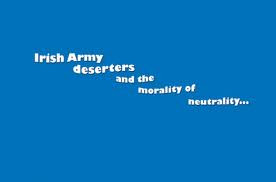A long time ago when your granny was a slip of a girl, there was a singer called Jimmy Jones who sang a song called “Good Timin’ “. It had a nice beat but it had better lyrics:
If little, little David hadn't grabbed that stone
Alyin' there on the ground
Big Goliath might've stomped on him
Instead of the other way 'round
Alyin' there on the ground
Big Goliath might've stomped on him
Instead of the other way 'round
But he had timin'
A tick, a tick, a tick, good timin'
A tock, a tock, a tock, a tock
A timin' is the thing
It's true, good timin' brought me to you
A tick, a tick, a tick, good timin'
A tock, a tock, a tock, a tock
A timin' is the thing
It's true, good timin' brought me to you
I thought of it last night as I watched the BBC’s ‘The View’. Mark Carruthers was interviewing Victims’ Commissioner Kathryn Stone. She made it clear that by no means all victims were in favour of the proposed Alasdair’s Law legislation forbidding ex-prisoners who’d been imprisoned for more than five years to serve as special advisers at Stormont. She added that some in fact saw it as a “political sideswipe”.
I thought it was a good interview and showed something of the different shades of opinion as well as pain among victims. My question, though, is simple: why didn’t we hear from Kathryn Stone with this information about a week ago? Because while it’s true that Ann Travers didn’t say she spoke for all victims (and if I said she did I was wrong), she did say that this law targeting ex-prisoners was “for all victims”. Kathryn Stone made it clear that Ms Travers’s campaign was not something that all victims wanted, and that there was an element of political party-bashing attached to it, as some victims saw it.
But if Kathryn Stone had said this a week ago it would have trimmed back Ann Travers’s campaign as being solely motivated by her love for her dead sister and her concern for all victims of violence. However, it was only this week we got to hear the bigger victim story, at a point where it didn't really matter, as another flip-flop from the SDLP might be terminal.
Besides timing, of course, the media give shape to political events through the kinds of questions they ask and who they ask them of. On Good Morning Ulster this morning (I wonder how many Ballyshannon listeners it gets), Karen Patterson asked special adviser to Martin McGuinness, Paul Kavanagh, if he ever thought of those killed through his actions when he was in the IRA. Kavanagh said he did.
It could be classified as a fair question, since victims have been the topic of the week. But I tried thinking back to a time when a BBC interviewer - or an interviewer from any other channel - asked the same question of someones from the British armed forces who’d been in Afghanistan or some such place, and had been involved in attacks and gun battles there. It may have happened but I can’t for the life of me remember any such.
And so we come back to that old word: consistency. If it’s a reasonable question to ask Paul Kavanagh if he ever thinks of those who died as as result of his actions, it’s equally valid to ask a British soldier or officer how he feels about people he’s killed on the far side of the world. But we don’t get that. Instead we get Help for Heroes, welcoming-home parades and medals issued to those most prominent in the distribution of death.
The media hold our reality in the palm of their hand like a piece of plasticine, and they can shape it whatever way they want. Or are told to.

























